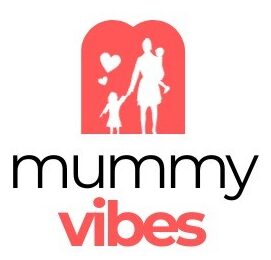
Embracing Motherhood: Reconnecting With Your Body and Mind After Pregnancy
Motherhood is a remarkable transformation that touches every part of a woman’s life. From the emotional highs of bonding with a newborn to the physical recovery that follows childbirth, the journey invites patience, self-compassion, and rediscovery. Adjusting to a new identity while caring for a baby can be both joyful and challenging, especially when it comes to reconnecting with your body after pregnancy.
Modern mothers are learning that caring for themselves is an integral part of caring for their families. The postpartum stage is not just a period of healing; it is an opportunity to establish long-term wellness habits, strengthen mental health, and rebuild confidence.
The Physical Recovery Journey
The body undergoes immense change during pregnancy and delivery. Muscles stretch, hormones fluctuate, and energy levels shift dramatically. Many new mothers experience fatigue, joint stiffness, and slower recovery in the months following childbirth.
Gentle movement is often the best place to start. Walking, stretching, and light yoga can improve circulation, ease tension, and help restore balance. Some mothers benefit from postnatal fitness classes that focus on rebuilding core strength and pelvic stability. Others prefer quiet home routines that include mindfulness and breathing exercises.
A gradual return to activity helps prevent injury and supports energy levels. It also allows mothers to reconnect with their bodies at a comfortable pace. Rest and nutrition play equal roles in recovery. Consuming whole foods rich in iron, calcium, and healthy fats replenishes the body’s natural reserves and supports breastfeeding.
Sleep, though limited, becomes an essential element of healing. Even short naps can make a noticeable difference in mood and focus. Many mothers find that setting a flexible rest routine alongside their baby’s schedule helps sustain energy throughout the day.
Navigating Emotional Well-being
Beyond physical healing, emotional recovery shapes how mothers experience early parenthood. Feelings of joy and love often exist alongside worry, exhaustion, or moments of sadness. These emotions are normal. The transition into motherhood involves profound hormonal and psychological adjustments that take time to settle.
Open communication with partners, family, or friends can help mothers express what they are feeling. When conversations feel difficult, journaling or voice notes provide a private outlet for reflection. Some mothers also join local or online postpartum support groups to share stories and receive encouragement from those in similar situations.
Mental health professionals can also play an important role. Postpartum depression and anxiety are more common than often discussed, and early support makes recovery much smoother. Building awareness around these issues helps normalize the conversation and reduces stigma for mothers seeking help.
Redefining Body Image and Confidence
After giving birth, many women experience mixed emotions about their appearance. The body may feel different, and specific changes can linger even after recovery. Learning to appreciate this transformation as a symbol of strength rather than loss can be empowering.
Healthy body image begins with realistic expectations. Pregnancy alters skin elasticity, abdominal muscles, and weight distribution, all of which take time to stabilize. Some women turn to body-contouring solutions after completing their postpartum healing period to restore their pre-pregnancy silhouette or address changes in abdominal tone. Procedures such as a tummy tuck can refine areas affected by pregnancy and childbirth, offering both physical and emotional renewal for mothers who choose that path.
Whether through fitness, nutrition, or medical treatments, the goal remains the same: feeling comfortable and confident. Every woman’s postpartum experience is unique, and there is no single right approach to self-care. The most important part of this process is listening to one’s body and making decisions that align with personal comfort and wellness.
Nurturing the Mind-Body Connection
Motherhood encourages mindfulness. The constant rhythm of feeding, soothing, and nurturing a baby brings awareness to the importance of patience and presence. Integrating mindfulness into daily life helps mothers manage stress and stay grounded during unpredictable days.
Simple breathing exercises can reset the nervous system during moments of overwhelm. Gentle yoga or stretching before bed can calm the mind and reduce physical tension. Even a few minutes of intentional stillness can help mothers reconnect with themselves beyond their caregiving role.
Nutrition and hydration also influence emotional balance. Eating regular, nourishing meals stabilizes blood sugar levels, supporting mood and concentration. Drinking enough water aids recovery and enhances energy, especially during breastfeeding.
Building a Supportive Environment
Recovery and adjustment are smoother when mothers feel supported. Family members, friends, and community groups play a crucial role in providing that stability. Partners who participate in household duties or childcare help share the emotional and physical load, allowing mothers to rest and recharge.
Mothers benefit from identifying a network of dependable helpers who can step in when needed. This may include relatives, trusted friends, or even postpartum doulas. Creating a system of shared responsibilities ensures that mothers have time to care for themselves without feeling guilty or overwhelmed.
Simple Ways to Build Support
- Accept help when offered, especially with meals or chores.
- Schedule regular check-ins with supportive friends.
- Communicate openly with partners about needs and expectations.
A strong support network reinforces confidence and helps mothers maintain balance in the early months of parenthood. It transforms recovery from an isolated experience into a shared journey.
Establishing a Postpartum Routine
A consistent daily rhythm helps both mother and baby adapt to new patterns. While complete predictability is unlikely in early parenthood, even small routines can create comfort and reduce anxiety.
Morning rituals, such as a quiet cup of tea or a short journaling session, provide a sense of normalcy. Setting aside time for self-care, even in ten-minute increments, reinforces self-worth and improves overall mood.
Components of a Supportive Postpartum Routine
- Nutrition: Prioritize balanced meals that include lean protein, complex carbohydrates, and fresh produce.
- Movement: Include gentle exercise or stretching to support flexibility and energy.
- Connection: Spend time with loved ones or join mother-and-baby social groups.
- Rest: Nap when possible and create a calming bedtime routine.
When mothers design their days around both care and restoration, they create a foundation for long-term wellness.
Managing the Mental Load
Many people often underestimate the emotional and cognitive effort involved in motherhood. From remembering doctor appointments to managing household tasks, mothers carry a significant mental load that can lead to fatigue.
Breaking down responsibilities into manageable parts helps reduce stress. Some parents find success with shared family calendars or task apps that allow partners to divide duties. Others prefer handwritten lists or visual reminders around the home.
Mindful delegation also helps. Letting go of the expectation to do everything alone opens space for genuine rest. Partners, relatives, or hired help can handle routine chores so that mothers can focus on recovery and bonding.
Returning to Work and Social Life
Rejoining professional or social spaces after maternity leave can be both exciting and emotional. The shift requires time and understanding from both the mother and her environment. Planning helps ease the transition.
Some mothers choose to return to work gradually, beginning with part-time schedules or remote options. This flexibility supports emotional adjustment and gives families time to establish reliable childcare arrangements.
Workplaces that recognize the importance of postpartum adaptation create more inclusive environments. Employers who provide parental leave, lactation spaces, and flexible hours contribute to healthier, more loyal teams.
On a personal level, maintaining social connections also supports well-being. Spending time with friends, engaging in hobbies, or pursuing creative outlets reminds mothers of their individuality and passions outside of parenthood.
The Long-Term Perspective
Postpartum recovery does not have a defined endpoint. The process evolves with time as mothers grow into new versions of themselves. Emotional, physical, and mental adjustments can take months or even years to stabilize fully, and that is entirely natural.
As children grow, so do their mothers. Each stage brings new lessons and opportunities for reflection. Self-care becomes an ongoing practice rather than a temporary solution. The goal is not to return to who one was before pregnancy but to embrace the person who has emerged through it.
Motherhood encourages resilience, creativity, and compassion. It invites women to honor both their strength and vulnerability while continuing to nurture themselves and their families.
Balancing One Step at a Time
The postpartum journey is one of profound transformation. Reconnecting with the body, nurturing emotional well-being, and building a supportive environment help mothers thrive beyond early recovery. By embracing change with self-compassion and openness, women can rediscover confidence and peace in every stage of motherhood.
From gentle fitness and mindfulness to more comprehensive wellness approaches such as body contouring, each mother’s path to healing is deeply personal. What matters most is recognizing that self-care is not a luxury—it is an essential part of the motherhood experience.
Through patience, support, and awareness, mothers can create balanced lives that honor both their own needs and those of their families, growing stronger with every step along the way.

 Angela Labombard is the visionary founder and lead copywriter of Mummy Vibes, a blog dedicated to the multifaceted journey of motherhood. With a passion for storytelling and a deep understanding of the parenting landscape, Angela has created a platform that resonates with mothers across the globe. Mummy Vibes is more than just a blog; it’s a community where mothers can celebrate their joys, share their struggles, and find practical advice for navigating the complexities of parenthood. Angela’s commitment to empowering mothers shines through every post, whether it’s offering tips for sleepless nights or celebrating the achievements of inspiring moms. Her ability to connect with her audience on both the joys and challenges of motherhood has made Mummy Vibes a go-to resource for parents seeking support and inspiration on their parenting journey.
Angela Labombard is the visionary founder and lead copywriter of Mummy Vibes, a blog dedicated to the multifaceted journey of motherhood. With a passion for storytelling and a deep understanding of the parenting landscape, Angela has created a platform that resonates with mothers across the globe. Mummy Vibes is more than just a blog; it’s a community where mothers can celebrate their joys, share their struggles, and find practical advice for navigating the complexities of parenthood. Angela’s commitment to empowering mothers shines through every post, whether it’s offering tips for sleepless nights or celebrating the achievements of inspiring moms. Her ability to connect with her audience on both the joys and challenges of motherhood has made Mummy Vibes a go-to resource for parents seeking support and inspiration on their parenting journey.
